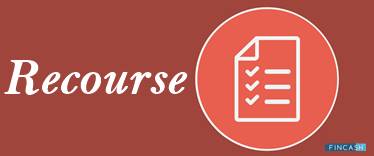What is a Recourse Loan?
Also referred to as the Recourse debt, a recourse loan is a secured loan that makes it compulsory for the borrower to pay the amount they have borrowed. This type of loan requires Collateral. The borrower has to use the home equity, valuable assets, precious gems, and other such assets as collateral to obtain the recourse loan. The conditions associated with this type of loan are quite flexible (since it comes with security). The recourse loan gives lenders the right to seize the assets used as collateral in the case of loan defaults.

If the borrower fails to pay the accrued interest or loan, then the lender can claim the assets to recover the amount they lent. A recourse loan is the opposite of a non-recourse loan, in which the lender can only seize the assets that are used as security for the loan. Recourse loan gives lenders the right to seize different assets (even the ones that are not used as collateral) for the loan recovery. This happens when the value of the collateral is not enough to recover the debt.
Example
Suppose a person applies for a recourse loan of 10 Lakhs to set up a startup. The business doesn’t generate any profits. The company ends up bankrupt in a year. The corporate building this borrower used as collateral worth only 7 Lakhs. Now that the borrower has obtained a recourse loan, the lender has the right to sell this corporate building and other assets to recover the loan in full.
In addition to this building, the lender can use the personal property of the borrower as well as their Bank accounts to recover the remaining balance. The lenders can also use the current source of the borrower’s Income to get their money back. For instance, they can take the daily wages or portion of the borrower’s salary to settle the dues. They can withdraw funds from the borrower’s retirement accounts.
Talk to our investment specialist
Recourse and Non-Recourse Loans
Lenders are allowed to use nearly every source of the borrower’s income to recoup the unpaid amount. Recourse loan favors the lender as it gives them the right to seize any asset or property if the borrower fails to fulfill their debt repayment obligations. A non-recourse loan limits the lenders right to only the assets and property used as collateral. The lender cannot claim the personal properties of the borrower even if the collateral’s value is substantially lower than the amount the borrower owes to the lending institution.
In the recourse loan, the lender uses the personal assets of the borrower only when they are unable to recoup the debt amount after selling the collateral. Recourse loan imposes only a few restrictions concerning the assets that can be sold to recover the loan. A recourse loan is mainly used for the riskier borrowers. It helps lenders reduce the risk associated with low-credibility borrowers. This type of loan benefits the borrower as well. It comes with a low-interest rate and a flexible loan payment plan.
All efforts have been made to ensure the information provided here is accurate. However, no guarantees are made regarding correctness of data. Please verify with scheme information document before making any investment.












